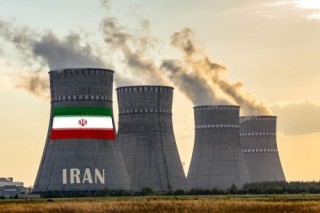Political wills dominate in reaching a nuclear agreement
The nuclear agreement reflects the battle of political wills between the US and Iran, writes Ahmad Abdul-Rahman.
The talks held between Iranian President Ibrahim Raisi and French President Emmanuel Macron about two months ago focused on the negative effects of the European Troika draft resolution adopted by the International Atomic Energy Agency (IAEA). It condemned Iran's enrichment activities.
However, Iran's chatter about these talks is worth analyzing. The latest round of indirect negotiations between the US and Iran in Vienna revealed that the Iranian negotiator demanded that the IAEA declare closure of the Iranian file and return to Article 9 of the 2015 agreement. That demand is non-negotiable for Iran, especially regarding the peaceful declaration of all Iranian nuclear activities.
The reason why Iran insists on this demand is the fear that Israel could revert to the IAEA in the future. It may be that the UN Security Council could get involved, relying on Israel to provide the secret documents that it was able to seize and transfer outside Iran in the operation carried out by Israel's Mossad in Iran's Turquozabad region.
Former Prime Minister Benjamin Netanyahu presented some of these documents at a press conference in which he revealed the name of the first official in charge of the nuclear programme, General Mohsen Fakhrizadeh. He was assassinated by Israeli intelligence in late 2020 on the outskirts of the Iranian capital, Tehran.
Despite the words of the Spanish EU mediator, Commissioner for Foreign and Security Policy Josep Borrell and his assistant Enrique Mora (also from Spain) about the completion of the drafting of the new agreement, the new nuclear agreement will obligate Iran to a specific percentage of uranium enrichment, and will not allow it to enrich uranium above 3.67 per cent. The new agreement will also prevent Iran from storing more than 300 kilograms of enriched uranium, and will impose restrictions on Iran's nuclear program until 2031.
In contrast to the official American silence, the Iranian side considered that the existence of a final text of the nuclear agreement does not mean accepting it. This in light of the fact that several points remain outstanding and the position regarding them has not been resolved. A decision should be taken about them politically and economically.
What is new in the Iranian position is that it has found a way out for the demand that threatens the fate of any understanding with Washington, whether in reaching a formula that revives the old agreement, or in the framework of a new agreement. This became clear when Tehran confirmed that it had abandoned the requirement to remove the Revolutionary Guards from the sanctions list.
American intransigence in refraining from providing any written guarantees that it would not withdraw from the nuclear agreement in the future, and that it would be able to carry out its economic and commercial activities freely, has prompted the Iranian negotiator to search for formulas and solutions to ensure that the minimum of these demands could be met.
In return for Washington's unwillingness to provide any guarantees about the continuity of the agreement with any new president, the Iranian side has sought to confirm the steps it has achieved in uranium enrichment activities in recent months. It has maintained these agreements.
Iran is also seeking to obtain political and economic commitments that it can remove obstacles to foreign investments and Iranian economic and commercial dealings with the world, whether in the energy sector or otherwise. This would be achieved by reviving all the terms of the 2015 agreement, adhering to the new understandings, and reactivating the oversight of the IAEA, the inspectors, and the surveillance cameras.
What the Iranian negotiator does not say is that he would be unwilling to reach an understanding or agreement that may open the door in the future to discuss any files outside the framework of the nuclear programme and financial and economic issues. Nor does he want to leave any loopholes that the US could exploit, dragging the Iranian regime into negotiations on political and military issues.
The Iranian regime needs to find a formula to help it get out of its worsening economic crisis. This is now threatening the credibility of the government and administration of President Ibrahim Raisi and its political future within the structure of the post-Supreme Leader regime. This is especially the case since the previous policy of dismantling the sanctions regime has not achieved the hoped-for results.
Borrell and his assistant, Mora, see an agreement being made soon. However, Tehran and Washington, although they accept that an agreement is close formally, believe an agreement is still far away, especially if each side adheres to the conditions it demands. All these considerations makes a future agreement difficult to achieve unless a compromise is reached.


Comments